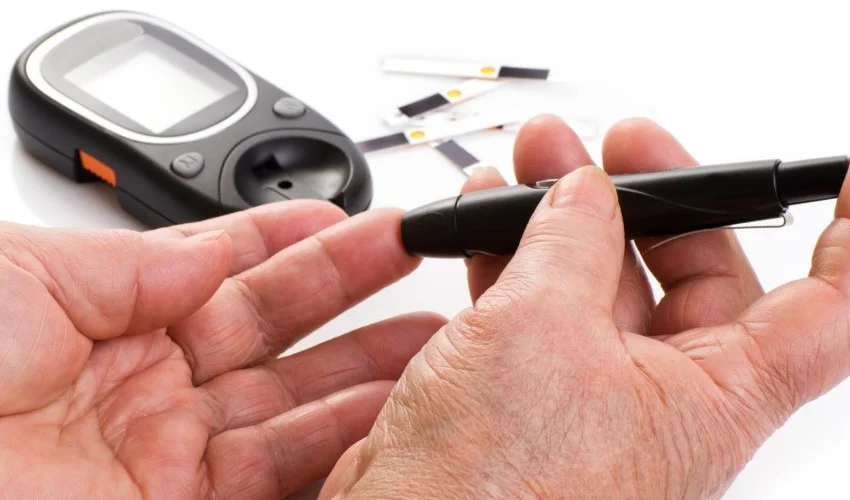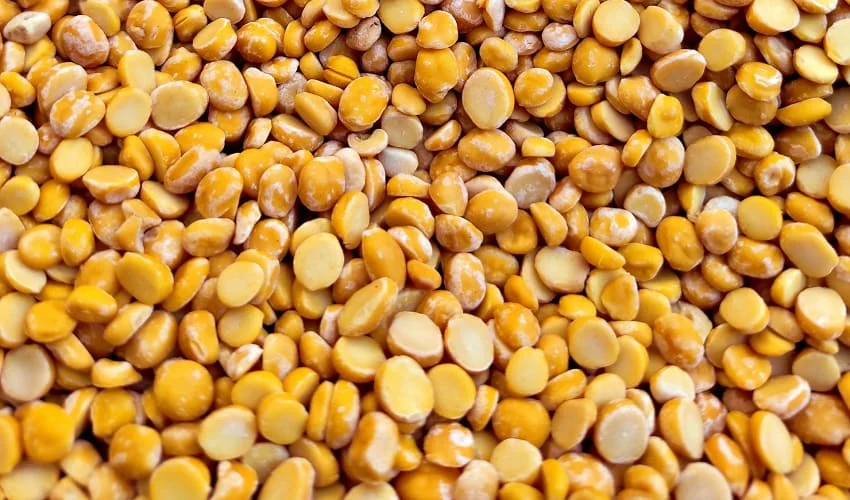Overview
Introduction to diabetes
Diabetes is a chronic condition that affects millions of people worldwide. It is characterized by high blood sugar levels due to the body’s inability to produce or use insulin effectively. In recent years, there has been growing interest in the link between diet and diabetes reversal. Research has shown that making changes to one’s diet can have a significant impact on managing and even reversing the effects of diabetes. This article aims to explore the connection between diet and diabetes reversal, providing valuable insights into how dietary modifications can play a crucial role in improving the lives of individuals with diabetes.
Importance of diet in managing diabetes
The importance of diet in managing diabetes cannot be overstated. Diet plays a crucial role in controlling blood sugar levels and preventing complications associated with diabetes. By following a healthy and balanced diet, individuals with diabetes can effectively manage their condition and even reverse it. A diet rich in whole grains, lean proteins, fruits, vegetables, and healthy fats can help regulate blood sugar levels, promote weight loss, and improve overall health. Additionally, avoiding sugary and processed foods is essential in maintaining stable blood sugar levels. Therefore, adopting a healthy diet is a fundamental component of diabetes management and can have a significant impact on reversing the condition.
Link between diet and diabetes reversal
The link between diet and diabetes reversal is a topic of great interest and research in the medical community. Numerous studies have shown that adopting a healthy diet can have a significant impact on managing and even reversing diabetes. A diet rich in fruits, vegetables, whole grains, lean proteins, and healthy fats can help control blood sugar levels, improve insulin sensitivity, and reduce the risk of complications associated with diabetes. Additionally, certain dietary patterns, such as the Mediterranean diet and the DASH (Dietary Approaches to Stop Hypertension) diet, have been shown to be particularly beneficial for individuals with diabetes. These diets emphasize consuming nutrient-dense foods and limiting processed foods, sugary beverages, and unhealthy fats. By making informed food choices and following a balanced diet, individuals with diabetes can take control of their health and potentially reverse the condition.
Understanding Diabetes
Types of diabetes
There are several types of diabetes, each with its own unique characteristics. The two most common types are type 1 diabetes and type 2 diabetes. Type 1 diabetes is an autoimmune disease where the body’s immune system mistakenly attacks and destroys the insulin-producing cells in the pancreas. Type 2 diabetes, on the other hand, is primarily caused by lifestyle factors such as poor diet, lack of physical activity, and obesity. It is important to note that type 2 diabetes can often be prevented or reversed by making healthier life choices. By adopting a balanced diet, engaging in regular exercise, and maintaining a healthy weight, individuals can significantly reduce their risk of developing type 2 diabetes and improve their overall health and well-being.
Causes and risk factors
There are several causes and risk factors that contribute to the development of diabetes. One of the main causes is an unhealthy diet high in processed foods, sugary drinks, and saturated fats. These types of foods can lead to weight gain, insulin resistance, and inflammation in the body, all of which are risk factors for diabetes. Other risk factors include a sedentary lifestyle, family history of diabetes, and certain medical conditions such as polycystic ovary syndrome. It is important to address these causes and risk factors in order to prevent and potentially reverse diabetes.
Symptoms and diagnosis
Symptoms of diabetes can vary from person to person, but common signs include frequent urination, excessive thirst, unexplained weight loss, and fatigue. If you experience any of these symptoms, it is important to consult a healthcare professional for a proper diagnosis. Diagnosing diabetes typically involves a blood test to measure blood sugar levels. Additionally, your doctor may ask about your medical history, conduct a physical examination, and recommend further tests to determine the type and severity of diabetes. Early diagnosis and treatment are crucial for managing diabetes and preventing complications.
The Role of Diet in Diabetes Management
Importance of balanced diet
A balanced diet is of utmost importance when it comes to reversing diabetes. It plays a crucial role in managing blood sugar levels and promoting overall health. By consuming a variety of nutrient-rich foods, individuals with diabetes can ensure they are getting all the essential vitamins, minerals, and antioxidants their body needs. A balanced diet consists of a combination of carbohydrates, proteins, and fats in the right proportions. It includes whole grains, lean proteins, healthy fats, and plenty of fruits and vegetables. Additionally, it is important to limit the intake of sugary and processed foods, as they can cause spikes in blood sugar levels. By following a balanced diet, individuals with diabetes can improve their insulin sensitivity, maintain a healthy weight, and reduce the risk of complications associated with the condition.
Carbohydrates and blood sugar control
Carbohydrates play a crucial role in blood sugar control for individuals with diabetes. When consumed, carbohydrates are broken down into sugar, which enters the bloodstream and raises blood sugar levels. However, not all carbohydrates are created equal. Simple carbohydrates, found in foods like white bread and sugary drinks, are quickly digested and cause a rapid increase in blood sugar. On the other hand, complex carbohydrates, such as whole grains and vegetables, are digested more slowly, resulting in a gradual and steady release of sugar into the bloodstream. This makes complex carbohydrates a better choice for individuals with diabetes as they help to maintain stable blood sugar levels. It is important for individuals with diabetes to monitor their carbohydrate intake and choose healthier options to effectively manage their blood sugar levels and potentially reverse the disease.
Effect of fats and proteins on insulin sensitivity
The effect of fats and proteins on insulin sensitivity is a crucial aspect of understanding the link between diet and diabetes reversal. Research has shown that a high intake of saturated fats and animal proteins can lead to insulin resistance, making it harder for the body to regulate blood sugar levels effectively. On the other hand, incorporating healthy fats such as those found in avocados, nuts, and olive oil, as well as lean proteins like fish and poultry, can improve insulin sensitivity and promote better blood sugar control. Therefore, it is important to choose the right types and amounts of fats and proteins in our diet to support diabetes reversal efforts.
The Mediterranean Diet and Diabetes Reversal
Overview of the Mediterranean diet
The Mediterranean diet is a well-known eating pattern that has been associated with numerous health benefits, including the prevention and management of diabetes. This diet is inspired by the traditional eating habits of people living in countries bordering the Mediterranean Sea, such as Greece, Italy, and Spain. It is characterized by a high consumption of fruits, vegetables, whole grains, legumes, and healthy fats, such as olive oil. Fish and poultry are also consumed in moderation, while red meat and processed foods are limited. The Mediterranean diet emphasizes the importance of enjoying meals with family and friends, as well as regular physical activity. Studies have shown that following the Mediterranean diet can help improve blood sugar control, reduce the risk of developing type 2 diabetes, and even reverse the condition in some cases. Overall, the Mediterranean diet provides a delicious and nutritious way to promote diabetes reversal and overall health.
Benefits for diabetes management
A healthy diet plays a crucial role in managing diabetes effectively. By making smart food choices, individuals with diabetes can experience several benefits in their diabetes management. Firstly, a balanced diet that includes a variety of fruits, vegetables, whole grains, lean proteins, and healthy fats can help control blood sugar levels. This can prevent spikes and dips in blood sugar, reducing the risk of complications. Additionally, a healthy diet can aid in weight management, which is important for individuals with diabetes as excess weight can worsen insulin resistance. Moreover, a nutritious diet can improve heart health by reducing the risk of cardiovascular diseases, which are common among people with diabetes. Overall, adopting a healthy diet can have significant positive effects on diabetes management and contribute to the reversal of the condition.
Research on the effectiveness of the Mediterranean diet in reversing diabetes
Recent research has shown promising results regarding the effectiveness of the Mediterranean diet in reversing diabetes. This diet, which is rich in fruits, vegetables, whole grains, legumes, and healthy fats, has been found to improve insulin sensitivity and blood sugar control. Studies have also found that following a Mediterranean diet can lead to weight loss, which is beneficial for individuals with diabetes. Additionally, this eating pattern is associated with a reduced risk of cardiovascular diseases, which are common complications of diabetes. Overall, the research suggests that adopting a Mediterranean diet may play a significant role in the reversal of diabetes and the improvement of overall health.
Other Diets for Diabetes Reversal
Low-carb diets
Low-carb diets have gained popularity in recent years as a potential strategy for diabetes reversal. These diets restrict the consumption of carbohydrates, such as bread, pasta, and sugary foods, while emphasizing the intake of protein and healthy fats. The idea behind low-carb diets is that by reducing carbohydrate intake, blood sugar levels can be better controlled, leading to improved insulin sensitivity and potential reversal of diabetes. Studies have shown that low-carb diets can be effective in lowering blood sugar levels and reducing the need for diabetes medication. However, it is important to note that low-carb diets may not be suitable for everyone, and it is recommended to consult with a healthcare professional before making any drastic dietary changes.
Plant-based diets
Plant-based diets have gained significant attention in recent years for their potential to reverse diabetes. These diets emphasize the consumption of whole, unprocessed plant foods such as fruits, vegetables, whole grains, legumes, and nuts, while minimizing or eliminating the intake of animal products and highly processed foods. Research has shown that adopting a plant-based diet can improve insulin sensitivity, reduce blood sugar levels, and promote weight loss, all of which are crucial for managing and reversing diabetes. Additionally, plant-based diets are rich in fiber, antioxidants, and phytochemicals, which have been found to have protective effects against diabetes and its complications. Therefore, incorporating more plant-based foods into the diet can be an effective strategy for individuals looking to reverse their diabetes and improve their overall health.
Intermittent fasting
Intermittent fasting is a popular dietary approach that involves alternating periods of fasting and eating. It has gained significant attention in recent years for its potential benefits in diabetes reversal. By restricting the timing of meals, intermittent fasting can help regulate blood sugar levels and improve insulin sensitivity. Studies have shown that intermittent fasting can lead to weight loss, which is crucial for managing diabetes. Additionally, it may promote the production of ketones, which can provide an alternative energy source for the body. However, it is important to consult with a healthcare professional before starting any fasting regimen, especially for individuals with diabetes, as individualized advice is essential for optimal management of the condition.
Conclusion
Summary of key points
In summary, this article highlights the significant relationship between diet and the reversal of diabetes. The research presented in this article demonstrates that adopting a healthy eating plan, such as a low-carbohydrate or Mediterranean diet, can lead to improvements in blood sugar control and insulin sensitivity. Moreover, it emphasizes the importance of incorporating regular physical activity and weight management strategies to enhance the effectiveness of dietary interventions. This article serves as a valuable resource for individuals seeking to understand the link between diet and diabetes reversal and provides evidence-based recommendations for implementing dietary changes to improve overall health and well-being.
Importance of personalized approach
The importance of a personalized approach in diabetes reversal cannot be overstated. Every individual is unique, with different dietary needs, preferences, and lifestyle factors. A one-size-fits-all approach to diet and diabetes management may not be effective for everyone. By tailoring the dietary recommendations and treatment plans to each person’s specific needs, healthcare professionals can optimize the chances of successful diabetes reversal. Personalized approaches take into account factors such as food preferences, cultural background, and individual goals, resulting in a more sustainable and enjoyable way to manage diabetes and improve overall health.
Future research and recommendations
Future research on the link between diet and diabetes reversal should focus on exploring the long-term effects of different dietary interventions. Specifically, studies should investigate the sustainability and feasibility of various diets, such as low-carbohydrate, Mediterranean, and plant-based diets, in achieving and maintaining diabetes remission. Additionally, further research is needed to identify the specific mechanisms through which dietary changes can lead to diabetes reversal, including the role of gut microbiota, inflammation, and insulin sensitivity. These findings can inform evidence-based recommendations for healthcare professionals and individuals with diabetes, helping to improve management and outcomes for this chronic condition.




